
Hurricane season is a critical period for Puerto Rico, and being prepared can make the difference between safety and danger. In
Have you ever wondered how the electricity you use in your home, office or any other place is generated? If yes, then you are at the right place. In this guide, we will explain how an electric generator works and everything you need to know about how it works.

An electrical generator is a machine that converts mechanical energy into electrical energy. It is a device that is used to supply electrical power when there is no connection to the electrical network, or as a backup power source in case of emergencies.
Electric generators are widely used in rural areas, on construction projects, at outdoor events, and in a wide variety of industrial applications. And it is at this moment where a question is born that is usually very common.
How Does an Electric Generator Convert Energy into Electricity?
In this guide, we will provide a solution to that question, we will see how an electric generator works and what parts it is composed of. We will also explain how the combustion system works, which is essential for the operation of the generator. In addition, we will include some frequently asked questions to answer the most common questions on this topic.
An electrical generator consists of several parts, each of which plays an important role in its operation. These are some of the main parts of an electric generator:
Engine: The motor is the component that provides the mechanical energy necessary to turn the generator.
Alternator: The alternator is the component that converts mechanical energy into electrical energy.
combustion system: The combustion system is the component that provides the energy necessary to turn the engine. This system can be powered by gasoline, Diesel, natural gas or other fuels.
Cooling system: The cooling system is responsible for keeping the engine at an adequate temperature for proper operation.
Control system: The control system is the component that regulates the speed of the motor and the amount of electrical power generated.
All these systems together are responsible for solving the question of How does an electric generator work?
Electric generators are based on Faraday's law of electromagnetic induction. D.that law states that a change in the magnetic field passing through a conductor induces an electric current in the conductor. Basically, this law is the main answer to the how does an electric generator work
In an electric generator, the magnetic field is produced by an electromagnet or a permanent magnet, while the conductor is a coil of copper wire. (Basically, this law is the main answer to the How does an electric generator work?
When the magnetic field passes through the coil of copper wire, an electric current is induced in the coil. This electrical current can be used to power an electrical load, such as a light bulb or an electric motor. The amount of electrical power generated depends on the strength of the magnetic field, the speed at which the coil of copper wire moves, and the number of turns in the coil.
If at any time you have questioned the This law is the main answer to As an electric generator works, it is extremely important that you keep in mind the following:
As the rotor rotates inside the stator, the windings in the rotor coil cut the magnetic field lines produced by the stator coils. This generates an electrical current in the rotor coils, which is transferred through the brushes and commutator to the stator. The electrical current generated by the stator can be used to power an electrical load.
The amount of electrical power generated by a generator depends on several factors, such as the strength of the magnetic field, the speed at which the rotor turns, and the number of turns in the coil. To increase the amount of electrical power generated, you can increase the strength of the magnetic field, increase the speed of the rotor, or increase the number of turns in the coil.
The combustion system is a fundamental part when questioning why how does an electric generator work. This system is responsible for providing the energy necessary to rotate the engine.
Next, we explain how the combustion system works in an electric generator:
In response to the question of how does an electric generator work, it is important to keep in mind that the operation of the electric generator is based on the transformation of mechanical energy into electrical energy.
Faraday's Law states that a conductor and a magnetic field are needed to generate an electric current. In addition, wind power generators use the energy of the wind to generate electricity. Now that you know how an electric generator works, you will be able to use this secondary or emergency source of energy in your home or industry!
now that you know Since an electric generator works, it is time to go a little further.
If you are looking for a reliable and efficient power source, you are in the right place. We offer a wide variety of Electric generators that can meet all your energy needs.
Don't wait any longer to get the reliable energy you need!

Hurricane season is a critical period for Puerto Rico, and being prepared can make the difference between safety and danger. In
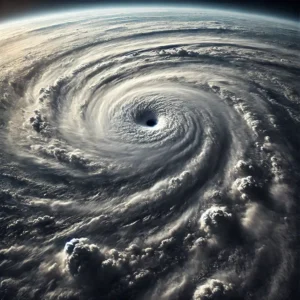
Understanding how a hurricane forms allows us to be one step ahead and prevent the devastating effects of these natural phenomena. Especially in areas
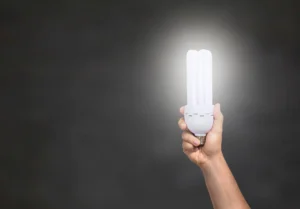
In a world where energy efficiency is increasingly a priority, learning to save energy has become a crucial need for both
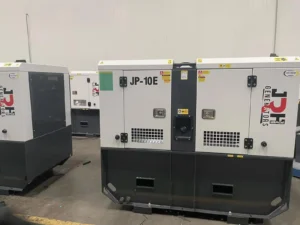
In a world that doesn't stop, the need for a reliable and continuous power source is more crucial than ever. At JRH Power
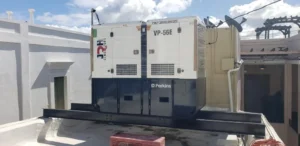
Have you ever wondered how electricity becomes a constant in our lives, even in the most critical moments? At JRH Power
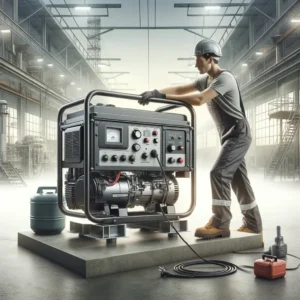
In our modern world, where electricity is vital, power outages are a frequent reality. Know how to connect a generator to the house
Electric generators can run on a variety of fuels, such as gasoline, Diesel, natural gas, propane, among others.
now that you understand Since an electric generator works, it is time to investigate certainly more specific points.
The duration of operation of an electric generator will depend on the type of fuel used, the capacity of the fuel tank and the load being used. In general, an electric generator can run for several hours or even days if it is supplied with adequate fuel and used with an appropriate load.
The capacity of an electrical generator is measured in watts (W) or kilowatts (kW). Capacity is determined based on the amount of power that is required to power the devices that will be connected to the generator. It is important to choose a generator with the proper capacity to avoid overloading or using it below its maximum capacity.
The main components of an electric generator are the rotor, the stator, the commutator and the brushes.
Some of the more common types of electrical generators include internal combustion generators, hydroelectric generators, and wind generators.
Some of the applications for electric generators include backup power generation, power supply in remote locations, and powering portable electronic devices.